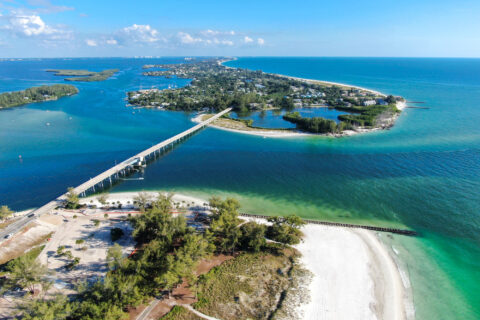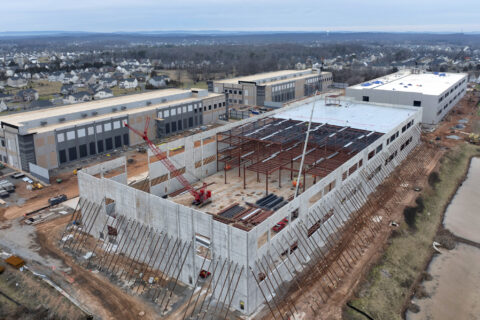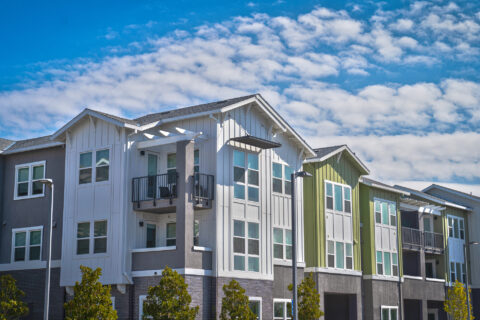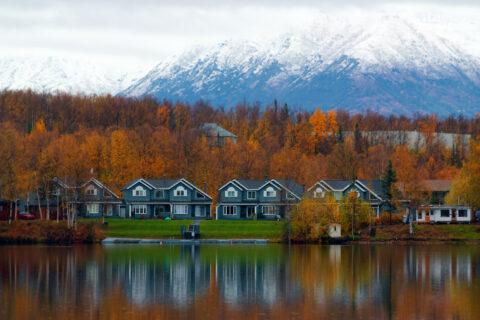Funding from the Waverley Street Foundation is advancing a three-year, no cost Resilient Infrastructure Technical Assistance Program led by the Smart Surfaces Coalition (SSC) to increase the adoption of reflective, porous and green surfaces (or “Smart Surfaces”) in nine metropolitan areas across the US. Smart Surfaces are climate resilience strategies to decrease extreme heat and flooding impacts in communities using reflective (cool) roofs, green roofs, solar PV, reflective pavements, porous pavements, carbon-sequestering concrete, bioswales, and trees.
The National League of Cities is a founding partner of SSC, a group of more than 40 national organizations dedicated to improving the health and well-being of residents. This coalition of partners focuses on transforming urban surfaces – making them more reflective and porous while increasing green spaces to lower citywide peak summer temperatures, reduce flooding and mold risk, improve air quality, reduce energy consumption, create jobs, and strengthen equity in cities and metropolitan areas. In 2021, SSC piloted this initiative in Baltimore where they are now adopting Smart Surface policies after the team found that these surfaces would cool the city by 5°F with an estimated 10:1 benefit-cost ratio. Since then, SSC has received a $10 million grant from the Waverly Street Foundation to advance the transformation of urban surfaces.
This work addresses critical obstacles to adoption of Smart Surfaces, including lack of data on current urban surfaces, lack of data on health and related impacts, limited funding for project implementation and lack of legal guidance to enable policy and project adoption. The coalition consists of experts in public health, data analytics, environmental justice, energy efficiency and climate policy. Over the next three years, we will provide the following support to participants:
- Data: Satellite imagery, analysis and mapping of resilience opportunities across selected cities to reduce extreme heat and flooding impacts.
- Education: Engagement and support of city staff and community members.
- Cost-benefit analysis tool and training: Creation of an online, customized cost-benefit analysis tool for planning and quantifying impacts of implementing Smart Surfaces.
- Funding guidance: Federal funding application templates and support to help secure federal infrastructure funding for projects identified through this initiative.
- Policy frameworks: Policy guidance and templates to support integrating Smart Surface strategies into city policies, plans and projects.
NLC member cities interested in advancing resilient infrastructure and integrating Smart Surface policies into their city operations can draw best practices from this work today. Three actions city leaders can take to advance resilient infrastructure in their communities include:
Explore funding opportunities to advance resilient infrastructure: There are a multitude of federal and state funding opportunities to support cities in funding resilient infrastructure. One major pathway to advance community resiliency is to examine your city’s existing capital plans for projects that could be applicable for available funding streams. For example, some cities are already using federal funds like the American Rescue Plan Act’s State and Local Fiscal Recovery Funds program to advance resiliency in their cities. There are many more funding opportunities to explore to implement resilient infrastructure projects in your city.
Share model policies and legislation aimed at integrating Smart Surfaces throughout your region: A major gap in advancing citywide policies to implement cool roofs and pavements, permeable infrastructure and solar PV is a lack of tested policies specific to a region. Many projects like cool roofs and roads are small-scale, pilot projects due to the innovative nature of these technologies so the results are limited. Working with cities in your region that have similar governance structures, climates and demographics to create a repository of existing Smart Surface policies and resources can advance resiliency policies in your community.
Understand the costs and benefits to make the case for resilience: Costs and benefits of resilience investments are locally specific, especially when comparing the expected design life of a project given the climate in which it exists, the cost of materials and construction and the benefits to the built, natural and social infrastructure of a community. Collecting information on the costs to implement Smart Surface projects is the first step to conducting a cost-benefit analysis or building a city-specific tool to understand the price tag and the rewards of these projects today and in the future.
Stay tuned for more information discussing the benefits of Smart Surface policies and projects.










